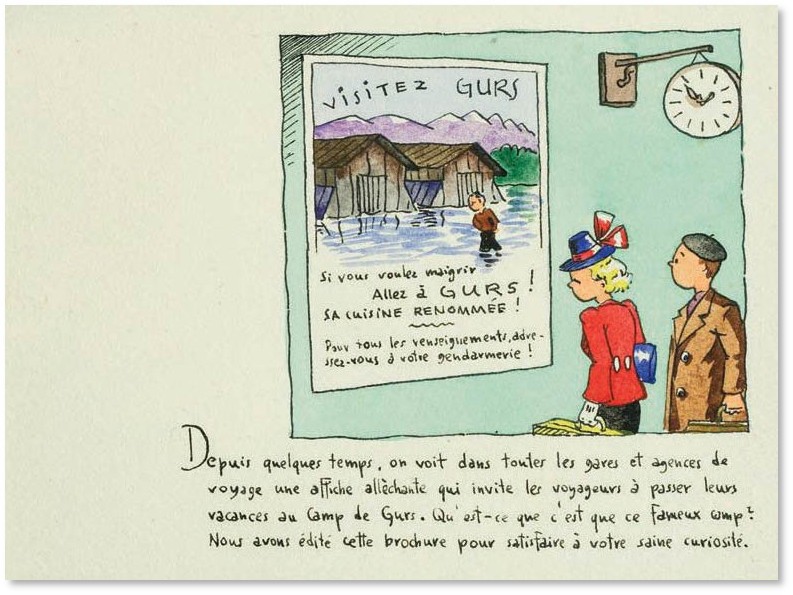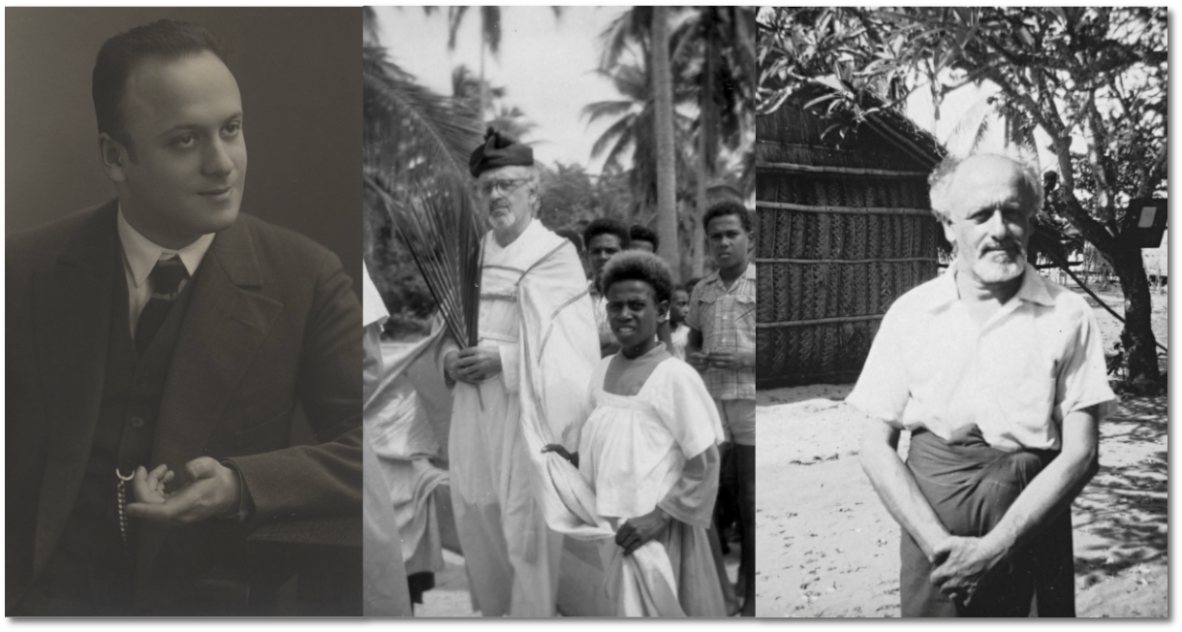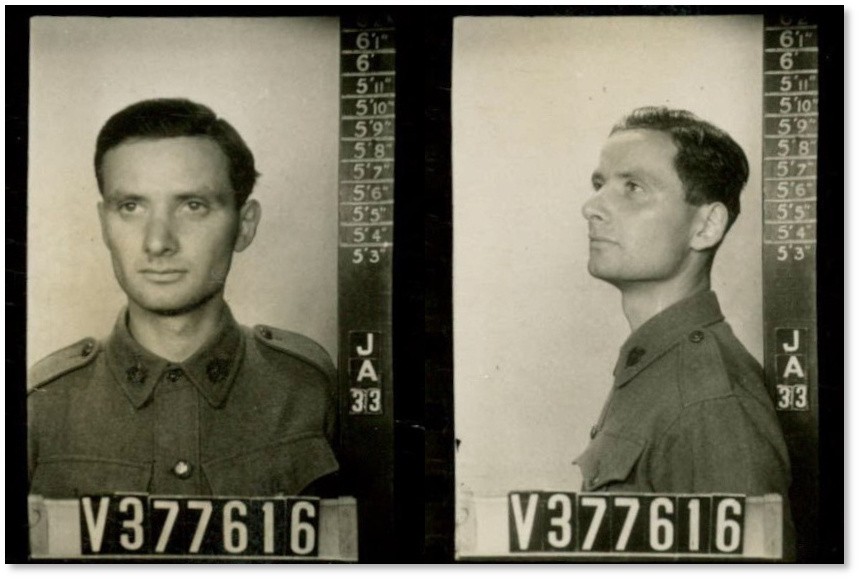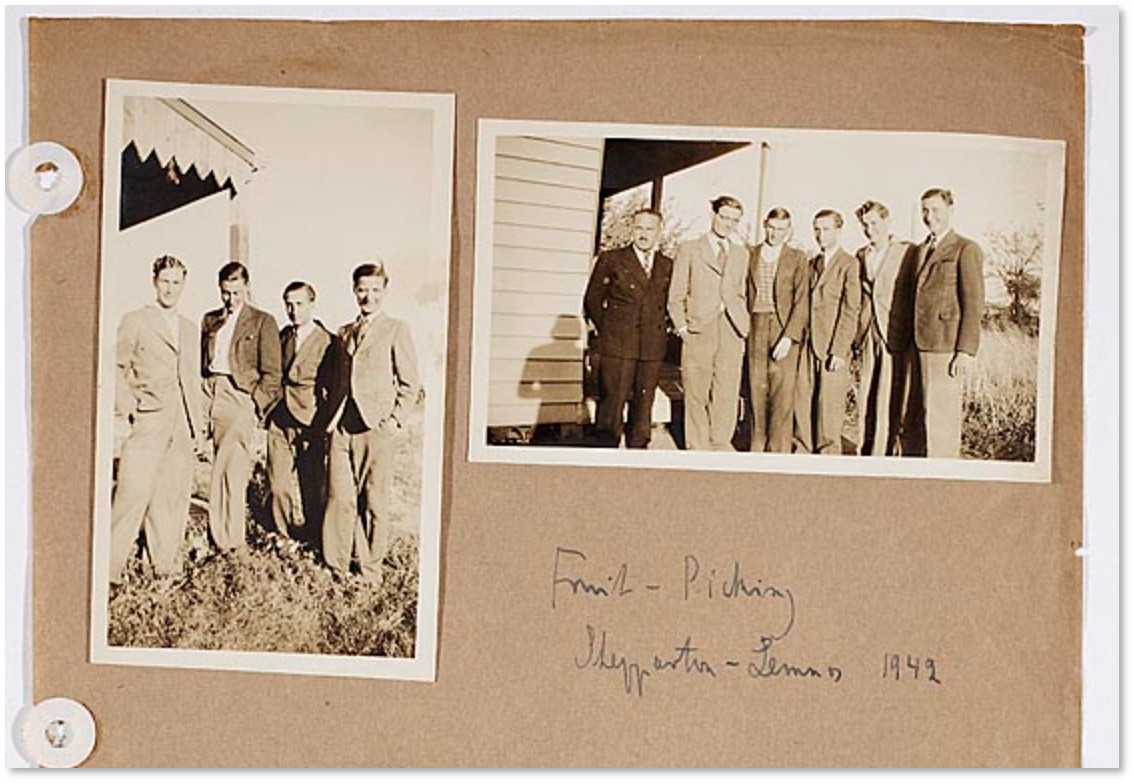Alfred Rosenthal - refugee, alien, internee, soldier, holocaust survivor
By Marg Powell, Specialist Library Technician, Metadata Services | 24 March 2023
Within the collections of the State Library of Queensland are stories of people who came to this country during times of war. Alfred Rosenthal was transported to the other side of the world in 1940, incarcerated and declared an "enemy alien". He elected to serve with the Australian Armed forces to gain his freedom.
Alfred and his twin brother Horst were born to Jewish parents Ernst and Frieda in 1915 in Bresalu. The brothers fled Germany in the 1930s, as the Nazi regime began to purge the country of Jews.
Alfred who worked in the fur-trade found employment in Leeds, England, where he was granted asylum. Here he enjoyed his love of the performing arts, and was also a teacher of dance.
Horst applied for asylum in France and worked as a draftsman in Paris, until the outbreak of the Second World War. Horst was arrested in June 1940 because of his Jewish ancestry and spent time in four French concentration camps. In Camp Gurs in south west France, Horst created three short comic books which have survived today. In September 1942 Horst was transferred to Auschwitz where he was executed on arrival, age 27.

Petit Guide à travers le Camp de Gurs by Horst Rosenthal, c.1942. An exhibition of his surviving works, was held at the Shoah Memorial, Paris in 2017. Image courtesy Wikimedia Commons
Alfred Rosenthal was arrested in Leeds in May 1940 and temporarily interned at Hayton, before being deported to Australia as an 'enemy alien' on HMT 'Dunera' along with 2,700+ other refugees principally German Jews - including Wilhelm Rechnitz, whose significant collection is held by State Library [see SLQ Collection].
Here they were interned in camps until they were able to meet one of several criteria to facilitate their release: obtain sponsored employment; join the 'land forces' of the Australian Army; return to England and serve with the British Forces; gain acceptance into a University to study.
Alfred Rosenthal and Wilhelm Rechnitz were detained in the same camps at Hay (NSW) and Tatura (northern Victoria). While Alfred obtained his release in April 1942, by enlisting in the 8th Australian Employment Company, Rechnitz remained interned until 1943.

Images of Reverend Dr Wilhelm Rechnitz, available in the collection held at the State Library of Queensland. 6341, Dr Wilhelm Rechnitz Papers, John Oxley Library, State Library of Queensland.
Alfred and Wilhelm remained friends for much of their lives even though they lived in quite separate circles and often countries. Reverend Dr Rechnitz eventually found a place for himself as a tutor on the islands of the Torres Strait, off the far north Queensland coast.
Alfred was discharged from the Australian Army in 1946 and granted a status of 'Naturalised' giving him quasi citizenship. His correspondence [over 120 letters and cards] was kept by Rechnitz and included in the papers donated to the Library after his death. Through these documents we can glimpse Rosenthal's life post war in Australia and his return to Europe in the 1950s.

Private Alfred Rosenthal, 8th Australian Employment Company, 1942. Image courtesy National Archives of Australia, Series B884, Item ID 6255095
Digitised records at the National Archives of Australia, show that he changed his name by deed poll to Frederick Ernest Robinson, many of the letters to Rechnitz [Dear Willie] are signed 'Fred'. Robinson remained in Australia until 1954 working in several hotels in Melbourne, he then joined the British Merchant Navy as a steward on 'SS Orsova', spent time in England, Vienna and Germany, before being discharged in Sydney in 1957.

Page from the scrapbook donated to the Jewish Museum of Australia, by Frederick Robinson [aka Alfred Rosenthal]. Image courtesy Jewish Museum of Australia, accession number 3375.
Between 1958 and 1959 Robinson was employed at The Ritz Private Hotel, Cremorne, but by 1960 was again in London working for J. Lyons & Co.. Robinson returned to the sea in 1961 on SS Arcadia, and was able to visit his sole surviving relative, Rudolf Zoellner in Dachau. It is not clear whether Robinson ever returned to Australia as he made a life again in Europe. In 1971 he relocated from London to West Berlin, from where he wrote of his residence in Friedenau and was running a bar in a hotel in the Fasanenstrasse near the Juedischen Gemeindehaus [Jewish synagogue]. Alfred [Frederick] and his uncle Rudolf were the only survivors of his family in the "Shoah" or Holocaust in Hebrew.
The story of the 'Dunera Boys' is well documented by published works:
- Dunera lives. Volume 1, A visual history / Ken Inglis, Seumas Spark and Jay Winter with Carol Bunyan
- Dunera lives. Volume 2, Profiles / Ken Inglis, Bill Gammage, Seumas Spark, Jay Winter with Carol Bunyan
- The 'Dunera News' [all their archived issues are available online]
The Dunera Association, Dunera Museum, Tatura Museum, and the Dunera Stories [hosted by Monash University] continue to honour the lives of these refugees.
The Rechnitz collection includes over 1,500 items of correspondence from family, friends and former internees dating from 1936 to 1975 and is available for viewing at the State Library of Queensland, Brisbane. While the copyright of the works by Reverend Dr Rechnitz has been assigned to the Library, works by other authors remain In Copyright until 70 years after the author's death.
Read more ...
State Library collections:
6341, Dr Wilhelm Rechnitz collection, John Oxley Library, State Library of Queensland
National Archives of Australia:
https://recordsearch.naa.gov.au/SearchNRetrieve/Interface/ViewImage.aspx?B=9906990 https://recordsearch.naa.gov.au/SearchNRetrieve/Interface/ViewImage.aspx?B=8618171 https://recordsearch.naa.gov.au/SearchNRetrieve/Interface/ViewImage.aspx?B=6255095 [Army Service record]
- Dunera Association | Dunera Museum | Tatura Museum
- Dunera Stories [Monash University]
- Manpower and the Armies of the British Empire in the two world wars / Paul R. Bartrop. Cornell University Press, 2021. Chapter 9. 'Enemy aliens' and the formation of Australia's 8th Employment Company
- Scrapbook of Frederick Robinson [aka Alfred Rosenthal], Jewish Museum of Australia, Accession 3375
- Horst Sigmund Rosenthal (10 August 1915 – 11 September 1942) [Wikipedia]
- Lambeck Comiclopedia
- Defining moments [in Australian history]. National Museum of Australia
Notes ...
Ernst Nathan Rosenthal (1882-1925)
Frieda Zoellner (1890-1942)
Stefan Rosenthal, (18 January 1920-1941?) deported to Litmanstadt, where he died.
Watch ...
Videocasts of "Searching for traces of Gurs" [In German]
Comments
Your email address will not be published.
We welcome relevant, respectful comments.